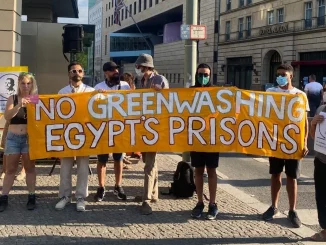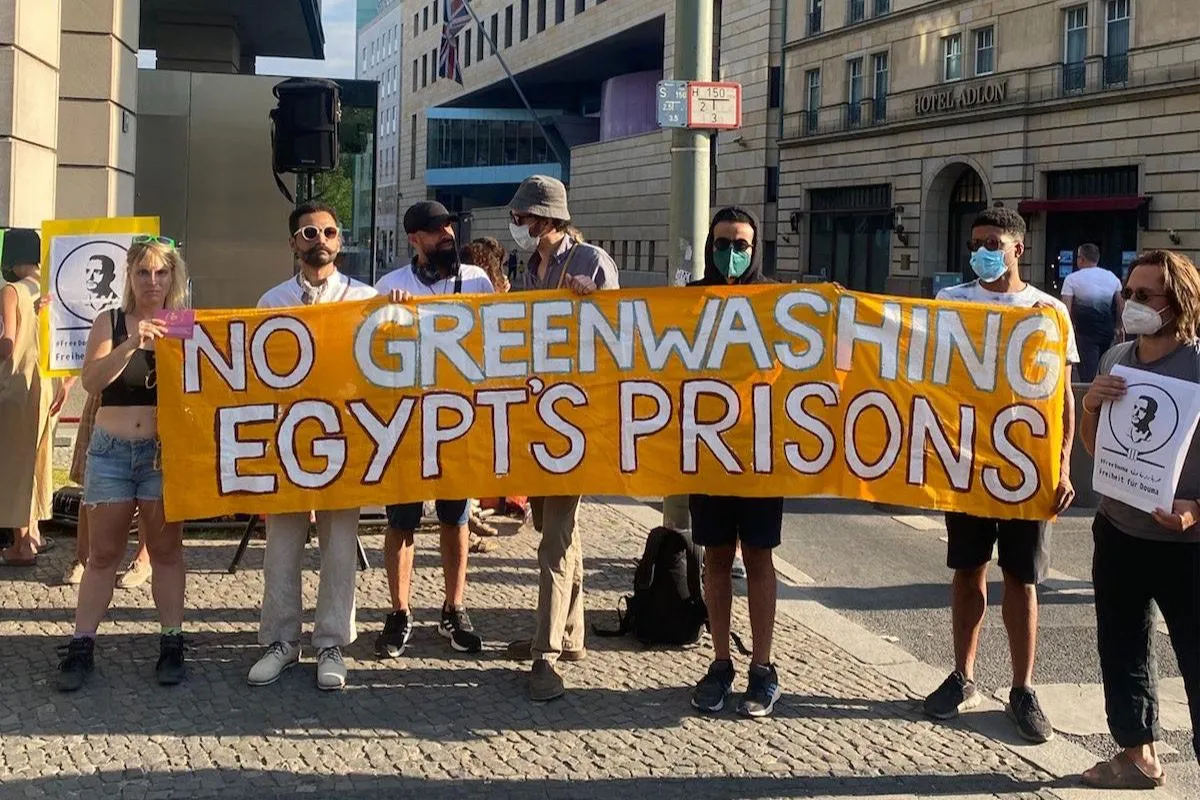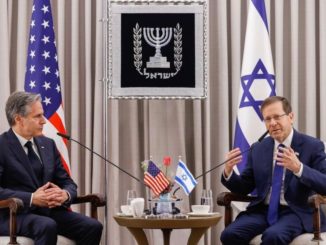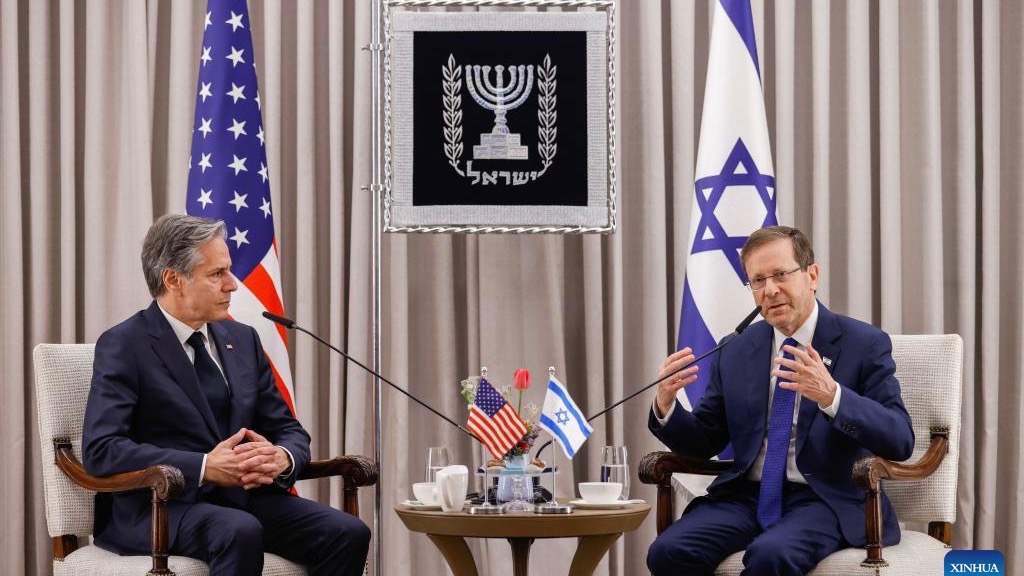
Editor’s Note: This article originally appeared in Multipolarista.
The United States constantly accuses its adversaries of holding political prisoners, while insisting it has none of its own. But for its entire history, the U.S. government has used incarceration of its political opponents as a tool to crush dissent and advance the interests of economic elites.
Well-known cases are those entrapped or framed in U.S. national security state sting operations, or imprisoned with extreme sentences for a minor offense because of their political activism, such as Black revolutionary George Jackson.
Each period of struggle by the working class and oppressed peoples against ruling-class control results in some activists locked up for their revolutionary work. “Political prisoner” has often meant those revolutionaries jailed for fighting their national oppression, as is the case with a great number of Black Panthers.
In contrast, a century ago, most political prisoners in the United States were Marxists, labor organizers, and anti-war activists, such as Joe Hill, Eugene Debs, and Big Bill Haywood.
Today, the U.S. national security state considers its most dangerous enemies those who expose its crimes at home and abroad.
There are also many thousands of incarcerated people who never received a fair trial, or were innocent of the crimes they have been jailed for. A high percentage of them are non-white, peoples subject to second-class citizenship in the United States. A number are executed, such as Troy Davis, or spend their whole lives in prison.
While the United States represents just over 4 percent of the world’s population, it holds approximately 20 percent of its prisoners. Black people are imprisoned at five times the rate of whites.
The following list of political prisoners currently detained by the U.S. government categorizes them into seven groups:
- national security state employees and reporters locked up for publicizing blatant government criminality
- representatives of foreign governments that Washington seeks to overthrow who were imprisoned for “violating” illegal unilateral U.S. sanctions
- Black, Indigenous, and Latinx revolutionaries fighting for the rights of their peoples
- Arabs and Muslims targeted after 9/11
- prisoners detained in the Guantánamo torture center without charges
- women locked up for defending themselves against violent attacks
- environmental activists
A number of whistleblowers in the United States have previously been imprisoned or are wanted. These have included:
- U.S. Army intelligence analyst Chelsea Manning
- NSA contractor Edward Snowden
- Air Force intelligence specialist Reality Winner
- CIA analyst John Kiriakou
- hacktivist Jeremy Hammond
- CIA officer Jeffrey Sterling
- NSA executive Thomas Drake
- hacktivist Aaron Swartz
- Air National Guard intelligence analyst Matt DeHart
- journalist Barrett Brown
- FBI agent Terry Albury
Among those imprisoned today are the following:
Julian Assange is a renowned journalist and editor of WikiLeaks who was arrested in 2019 in the Ecuadorian embassy in London, where he had political asylum since 2012. In April 2022, a British judge ordered Assange extradited to the United States to face up to 175 years in prison for publishing truthful information about the wars in Iraq and Afghanistan. The United States has indicted Assange under the Espionage Act, even though he published the same information as did the New York Times and Washington Post.
Researcher Mark Weisbrot explained in 2017, “Julian Assange is a political prisoner. … His crime, and that of WikiLeaks, has been the practice of journalism, and particularly in defense of human rights and civil liberties. … Assange and WikiLeaks’ real offense was to expose the crimes of the most powerful people in the world.”
Extraditing Assange, a journalist and Australian citizen, to the United States would have even more negative repercussions for our present remnants of free press and democratic rights. No case better embodies the old IWW banner for “class war prisoners”: “Remember! We’re in here for you, you’re out there for us.” Roger Waters and Noam Chomsky have also spoken about the importance of the Assange case.
Daniel Hale has been imprisoned since 2019. He was sentenced to 45 months for releasing documents showing U.S. military drone strikes in Afghanistan largely killed innocent people. Hale participated in the drone program while in the Air Force and NSA from 2009 to 2013, and later became an outspoken critic and a defender of whistle blowers.
Hale is believed to have been the source material for The Drone Papers. The documentary National Bird documents whistleblowers in the U.S. drone assassination program. For his truth-telling, Hale received the Sam Adams Award for Integrity in Intelligence and the Blueprint for Free Speech International Whistleblowing Prize. Chris Hedges has written about his case.
Joshua Schulte, a former hacker employed by the CIA, was blamed for releasing two billion pages of secret CIA data, known as Vault 7, to WikiLeaks. Vault 7 programs were CIA techniques used to compromise Wifi networks, hack into Skype, defeat anti-virus software, hack Apple and Android smartphones in overseas spying operations, turn internet-connected televisions into listening devices, and commandeer the guidance systems in cars.
Schulte has been imprisoned since 2018 and faces up to 80 years, in brutal conditions similar to those endured by Assange today.
Ana Belén Montes was a Defense Intelligence Agency (DIA) analyst who alerted Cuba of U.S. plans of aggression. She was arrested in 2001, pleaded guilty to conspiracy to commit espionage, and was held in solitary confinement in Fort Worth, Texas for most of her 21 years behind bars.
Montes told the judge, “I consider that the policy of our government towards Cuba is cruel and unjust, deeply unfriendly; I considered myself morally obligated to help the Island defend itself from our efforts to impose our values and our political system on it. We have displayed intolerance and contempt for Cuba for four decades. We have never respected Cuba’s right to define its own destiny, its own ideals of equality and justice. I do not understand how we continue to try to dictate. … how Cuba should select its leaders, who its leaders should not be and what laws are the most appropriate for that nation. Why don’t we let them decide how they want to conduct their internal affairs.”
Mun Chol Myong is a North Korean was extradited and imprisoned in the United States on March 20, 2021. Mun was arrested in Malaysia in May 2019 after a Washington, DC judge issued a warrant for his arrest. His supposed “crime” of conspiracy and money laundering in fact consisted of supplying needed goods to the DPRK by circumventing U.S. sanctions on the country.
A top Justice Department official claimed foreigners who have never been in the United States can be extradited to it for violating domestic laws. The United States has enforced a blockade against North Korea since 1950, the start of the U.S. war on Korea, designed to cripple its economic and social development.
Alex Saab, a Venezuelan diplomat, was jailed on June 12, 2020 in Cabo Verde on orders of the United States. He was then seized by U.S. agents and brought to a Miami prison on October 16, 2021.
Saab was arrested while on a diplomatic mission to procure food and energy supplies to alleviate the humanitarian crisis in Venezuela, which was largely caused by the illegal U.S. blockade of the nation.
As a diplomat, Saab has immunity from detention based on the UN Vienna Convention of 1961. The UN Human Rights Commission and other international human rights defenders have denounced his extradition. The National Lawyers Guild calls for Saab’s immediate release.
Simón Trinidad (Ricardo Palmera) was a long-time leader in mass movements for social change in Colombia, and is a top negotiator for the Revolutionary Armed Forces of Colombia (FARC). In 2003, he was sent to Ecuador to make contact with UN official James Lemoyne, as part of efforts to revive peace talks with the Colombian government, and begin communication on the exchange of prisoners of war.
He was captured in Ecuador in 2004 and then extradited to the U.S. on charges of narco-trafficking and kidnapping, and subjected to four separate trials, due to repeated mistrials. Ultimately, he was sentenced to 60 years at the Florence “Supermax” prison in Colorado.
Meng Wanzhou, the chief financial officer and deputy chair of the board of Chinese tech giant Huawei, was imprisoned in Canada in 2018 on a U.S. extradition request, after Washington accused her company of misleading British bank HSBC over its business dealings in Iran, thereby violating its illegal unilateral sanctions. Meng was released in September 2021.
Many Black political prisoners in the United States were targets of the police state’s Counter Intelligence Program (COINTELPRO) in the 1960s and ’70s, when the FBI sought to destroy the movement for Black freedom.
As journalist Glen Ford explained, “If you attempt to lead Black people on an independent political path, the U.S. state will seek to neutralize you, imprison you, or kill you. If you exercise your right to defend yourself, and your people, from the oppressive arm of the state, they make you into an outlaw, and hunt you down.”
The FBI said it goals in COINTELPRO were to “expose, disrupt, misdirect, discredit, or otherwise neutralize,” adding that “no opportunity must be missed to exploit through counterintelligence techniques … for maximum effectiveness … and a final goal should be to prevent the long range growth of militant black organizations, especially among youth.”
This police state operation against Black liberation resulted in at least 38 Black Panther Party members being killed, including Fred Hampton and Mark Clark, with hundreds more imprisoned on frame-up charges for their armed self-defense actions, several for more than 45 years.
The website Members of the Black Panther Party Still Imprisoned registered the number incarcerated in 2014, although several have died since then. The films “The FBI’s War on Black America” and “Cointelpro 101” document the police state’s dirty work.
Those currently imprisoned include:
Mumia Abu-Jamal is the most prominent former Black Panther political prisoner. In 1981, COINTELPRO style, he was sentenced to death for the murder of a Philadelphia cop. Judge Albert Sabo, who ruled in his case and in his appeals, was heard by a court reporter to state “I’m going to help them fry the ni**er.” Black jurors were excluded. Witnesses were bribed and threatened to lie on the stand. Documents were hidden in the state prosecutor’s office.
Mumia was an organizer and campaigner against police abuses in the Black community, and was the president of the Association of Black Journalists. During his imprisonment, now commuted to life, he has published several books. More information can be found in the films “Mumia Abu Jamal: A Case For Reasonable Doubt?” and “Mumia: Long Distance Revolutionary” or the websites freemumia.com and bringmumiahome.com.
Leonard Peltier was an activist in the American Indian Movement (AIM) whose goal was to organize Indigenous communities to stand up for their rights. Sentenced to life as a result of a COINTELPRO operation, he has been imprisoned for 46 years for killing two FBI agents. Peltier participated in the AIM encampments on the Pine Ridge Reservation, where a 1975 shootout instigated by the FBI occurred.
Some 64 Native Americans, most with ties to AIM, were murdered. Their deaths went uninvestigated by the FBI. Evidence exonerating Peltier in the FBI case was withheld by the FBI. In his appeals, the government admitted it had no evidence he killed the two FBI agents, suppressed evidence proving this, and fabricated other “evidence.”
The other AIM members tried for the killings were exonerated in trial by reason of self-defense. One prosecutor admitted, “Your honor, we do not know who killed those agents. Further, we don’t know what participation, if any, Mr. Peltier had in it.”
Amnesty International, Nelson Mandela, Desmond Tutu, the American Association of Jurists, and 54 Congresspeople, among many others, have called for his freedom. The film “Incident at Ogala,” produced by Robert Redford, and the best-selling book “In the Spirit of Crazy Horse: The Story of Leonard Peltier and the FBI’s War on the American Indian Movement” made the case widely known. More information can be found at the websites whoisleonardpeltier.info and Peltier’s Prison Writings.
Mutulu Shakur, of the Republic of New Afrika movement, participated in presentations to the UN on discrimination experienced by Black communities, and by 1970 a target of the FBI’s COINTELPRO infiltration. He helped free Assata Shakur from prison in 1979, and she now has a bounty on her head.
In 1988 he was convicted of conspiracy related to a 1981 robbery where a guard and two police officers were killed, and sentenced to 60 years. At no time did the evidence show that Mutulu Shakur killed anyone.
He was also convicted for aiding in the prison escape of Assata Shakur, who has asylum in Cuba.
At two trials the evidence indicated others were responsible for the deaths (one became a government witness in return for a sentencing deal). The remaining defendants were acquitted for the murder allegations. More information can be found at mutulushakur.com and the Jericho Movement.
Jamil Abdullah al-Amin (H. Rap Brown) was chairman of Student Nonviolent Coordinating Committee (SNCC) and a Black Panther leader. FBI boss J. Edgar Hoover himself named H. Rap Brown – along with Stokely Carmichael, Elijah Muhammad, and Maxwell Stanford – as targets of COINTELPRO.
In a October 1971 standoff with police, he was shot and seized, and spent five years in Attica prison. From 1992 to 1997, the FBI closely surveilled Al-Amin, generating pages of 44,000 documents. In 2000, two sheriffs came to Al-Amin’s store with a warrant for failure to appear in court for a case later thrown out. Both were shot and one killed. Al-Amin was sentenced to life without parole, even though Otis Jackson confessed to the shootings. More information is available at whathappened2rap.com.
Veronza Bowers was an organizer in the Black Panther Party in the late 1960s. He has been imprisoned for 49 years for the murder of a U.S. park ranger, on the word of two government informers. There were no eye witnesses and no other independent evidence. See more at veronza.org and prisonersolidarity.com.
Ed Poindexter and Mondo we Langa (who died in prison in 2016) were leaders of the Black Panthers in Omaha, Nebraska in the 1960s, and targets of COINTELPRO. Both men were given life sentences on charges of killing a policeman. They were convicted on the testimony of a teenager who was beaten by the police and threatened with the electric chair if he did not incriminate Poindexter and Mondo.
Amnesty International has identified them as “prisoners of conscience.” Poindexter has been imprisoned for 52 years. The book “FRAMED: J. Edgar Hoover, Cointelpro and the Omaha Two story” and the documentary “Ed Poindexter & Mondo We Langa” offer more information.
Kamau Sadiki (Freddie Hilton), was a member of the Black Panther Party and Black Liberation Army, and close to Assata Shakur. He has been imprisoned since 2002, for a 1971 murder of a police officer. Back in 1971, two witnesses failed to identify Kamau from a line-up, and there was no physical evidence that implicated Sadiki, so the case was closed.
In 2002 Kamau was re-arrested and sentenced to life imprisonment for the killing – only after he refused to work with the government to induce Assata Shakur to leave Cuba for another country, where they could seize her. See more at freekamau.com.
Joy Powell organized protests against police brutality and corruption, demanding accountability for its victims, which led her to be targeted by the Rochester Police Department. In 2006, Powell was convicted by an all-white jury and sentenced to 16 years for burglary and assault. No evidence or eyewitnesses linked her to the crime.
Then in 2007, while imprisoned, Powell was falsely charged with murder, a cold case from 1992, and given another 25-year sentence, to begin upon the completion of her 16-year sentence. See freejoypowell.org, and the article “America is Still Locking People Up for Their Activism, Including Black Women.”
Alvaro Luna Hernandez (Xinachtli) is a Texas activist for Chicano rights and against police brutality. He was continually targeted by the police, who in 1996 attempted to arrest him on a spurious robbery charge that was later dismissed. The police used violence to arrest him, and Hernandez was sentenced to 50 years in prison on trumped up charges of threatening a sheriff while resisting arrest. More information can be found at freealvaro.net and prisonersolidarity.com.
Other political prisoners include Ruchell Cinque Magee, Fred “Muhammad” Burton, Ronald Reed, Kenny Zulu Whitmore.
More information is available at the Prison Activist Resource Center, Jericho Movement, freedomarchives.org, spiritofmandela.org, and prisonersolidarity.com.
The Coalition for Civil Freedoms published a report in 2021 titled The Terror Trap: The Impact of the War on Terror on Muslim Communities. It explains:
more than half of all alleged terrorism cases involved the use of paid informants who were usually responsible for concocting the plots in collusion with the FBI. Sensationalistic media coverage of the most high-profile cases almost never made mention of the fact that these terrorist conspiracies were the work of FBI informants.
…
the FBI has built a network of more than 15,000 registered informants whose primary purpose is to infiltrate Muslim communities to create and facilitate phony terrorist plots so that the bureau can then claim it is winning the War on Terror … the FBI engaged in a witch hunt, convicting hundreds of Muslims on pretext terrorism charges, even though the government knew that the defendants were not in communication with international terrorists, had not injured a single person or piece of property, and had no means to carry out a terrorist attack even if they wanted to.
For the government to tell the truth about the convictions would have undercut their own prosecutions, and exposed hundreds of Muslim convictions for the sham they were. No matter how innocent the government knew the defendants to be, it apparently decided that they had to publicly treat the defendants as the worst of the worst, or lose the fear factor which they had used so effectively to enact harsher laws.
The Newburgh Four, Libertyville Seven, and Romeo Langhorne are examples of this FBI entrapment.
Here are more current political prisoners:
Holy Land 5: Shukri Abu-Baker and Ghassan Elashi of the Holy Land Foundation were each sentenced in 2008 to 65 years in prison. Three others were sentenced to 13-20 years: Mufid Abdulqader, Mohammad El-Mezain (released and deported to Turkey in 2022) and Abdulrahman Odeh (released in 2020). All were imprisoned for giving more than $12 million to charitable groups in Palestine which funded hospitals and schools and fed the poor and orphans.
The U.S. government said these groups were controlled by Hamas, which it lists as a terrorist organization, even though it is the elected government of Gaza. Some of these charitable groups still received U.S. funds through USAID as late as 2006.
Testimony was given in the case by an Israeli government agent whose identity and evidence was kept secret from the defense. This marked the first time in U.S. legal history that testimony has been allowed from an expert witness with no identity, therefore making them immune from perjury. The book “Injustice: The Story of the Holy Land Foundation Five” details the case.
Aafia Siddiqui is a U.S.-educated Pakistani neuroscientist who came to the United States in 1990, then returned to Pakistan with her family in 2002. In 2003, she was kidnapped by U.S. and Pakistani agents and held in Bagram Air Base through 2008. She was convicted of attempted murder of her U.S. interrogators in Afghanistan in 2008—though she was the person shot—and sentenced to 86 years in prison in Fort Worth, Texas. The weapon she allegedly fired in the interrogation room did not have her fingerprints, nor was there evidence the gun was fired.
Four British parliamentarians wrote to President Barack Obama that “there was an utter lack of concrete evidence tying Dr Siddiqui to the weapon she allegedly fired at a U.S. officer,” and that she should be freed immediately. Former Attorney General Ramsey Clark described Aafia’s plight as the “worst case of individual injustice I have ever witnessed.” More information is available at aafia.org and aafiamovement.com.
Since 2002, a total of 779 Muslim men and boys as young as 10 have been seized and held at Guantánamo, a military base in Cuban territory that is illegally occupied by the United States.
Washington claimed the prisoners are outside U.S. and international law, and thus do not have the rights of POWs. Nearly all of the prisoners were held without charge or trial. Many were tortured to produce a compliant “learned helplessness” – the goal of former U.S. slave-breaking.
Some detainees were even tortured to death. In 2003, 23 prisoners attempted suicide in a mass protest against their abuse.
The torture was directed by two psychologists, James E Mitchell and Bruce Jessen.
By any definition of political prisoner, most political prisoners in Cuba are at the U.S. military-torture center at Guantanamo.
Today there are still 36 prisoners, only 11 of whom have been charged with war crimes, while just two have been convicted – and by “military commissions,” which Amnesty International declared do not meet fair trial standards.
Another 20 have been approved for release but remain locked up. Five detainees are “forever prisoners,” held without charge or trial, but not to be released. The websites closeguantanamo.org and witnessagainsttorture.com and films The Report and The Mauritanian provide more information.
Nearly three in 10 women in the United States have endured male physical violence or stalking by a partner. Nearly one in five women are raped in their lifetime. Almost four women are killed a day by a male partner.
Half of all women murdered are killed by men they know intimately, yet hundreds of women are in prison for killing their abuser in self-defense.
The U.S. legal system treats these as individual cases, not for what it is: the systematic patriarchal violence against women as an oppressed group.
The website Survived and Punished and Defend Survivors provide more information about this problem.
Marissa Alexander, a Black women from Florida, was sentenced to 20 years in 2013 for firing a warning shot inside her home to ward off her brutal husband, against whom she had an order of protection. Her affirmation that Florida’s “Stand Your Ground” law applied to her because she was defending herself was rejected. The same year, George Zimmerman was found not guilty of murdering Trayvon Martin based on that same law. National protests finally freed her in 2017.
Fran Thompson was an environmental activist in Nebraska. She has been in jail for 30 years for murder, sentenced to life without parole. She had defended herself, killing a man who was threatening to sexually assault her after he broke into her home. She was also targeted because of her environmental work, and was not allowed to plea self-defense.
Thompson had taken on the prosecutor and local government during her activism, having organized against two big projects, an egg factory and a nuclear waste facility, which would have brought the county big profits.
Maddesyn George has been imprisoned since July 2020. She was given a 6.5-year sentence for defending herself from sexual assault by a white man. She is a member of the Colville Confederated Tribes.
Indigenous women experience murder rates 10 times higher than the national average. The majority of these murders are committed by non-Native people on Native-owned land. See: MMIW USA and Coalition to Stop Violence against Native Women.
A number of environmental activists, animal rights supporters, and water protectors have challenged corporate abuses and have been jailed.
During the original so-called Green Scare, in the 1990s to early 2000s, the U.S. government sought to squash animal rights and environmental activism, acting in the interest of corporations that profit from damaging the earth.
A more recent series of jailings have specifically targeted people protesting against pipeline construction.
The following are political prisoners:
Joseph Mahmoud Dibee, a member of Earth Liberation Front and Animal Liberation Front was arrested in 2018 for his participation in setting fire to a slaughterhouse. Between 1995 and 2001, a group of Earth Liberation Front and Animal Liberation Front supporters caused more than $45 million in damages in a series of arsons. Dibee is imprisoned awaiting sentencing.
Marius Mason (formerly Marie Mason), a member of the Earth Liberation Front, was arrested in 2008 for an attack on a lab building at Michigan State University that was creating genetically modified organisms, with funding from mega-corporation Monsanto, the producer of Agent Orange.
Mason was also sentenced for damage to commercial logging equipment. No one was harmed by these actions. Mason’s 22 year-sentence is the longest yet for any of the Green Scare cases of those committing crimes against property of corporations.
Jessica Reznicek, of the Catholic Workers Movement, took action in 2016 to stop the environmentally destructive Dakota Access Pipeline by dismantling construction equipment and pipeline valves and setting fire to construction machinery. She would have been handed three years, but was sentenced to eight, with the added sentence for terrorism, even though no person was physically harmed.
Reznicek’s actions against private property were “calculated to influence or affect the conduct of government,” meaning a person who takes direct action against an energy company can be treated as an enemy of the state. Reznicek explained, “What we did do was fight a private corporation that has run rampant across our country seizing land and polluting our nation’s water supply.”
This list belies the myth that the United States has no political prisoners.
Political prisoners have no shared ideology. Standing for justice does not necessarily mean that one defends their political views; it means that one demands their freedom because they have been unjustly incarcerated.
Many hundreds of thousands of people have been unjustly incarcerated in the United States, but in these cases, it is clear that they were detained because of their political beliefs and activism, and that by definition makes them political prisoners.







